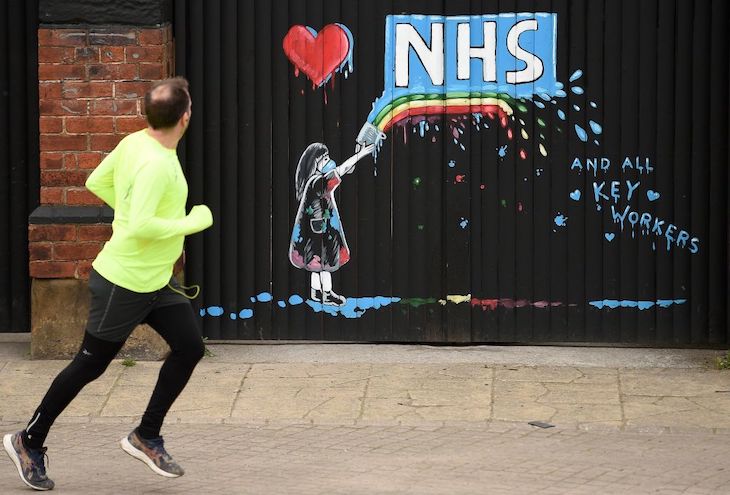The NHS is in crisis, but the government at last has a plan: a ‘Long-term Workforce plan’, that is, aimed at getting staffing levels up to something functional in the years to come. The £2.4 billion blueprint (which has big question marks around how it will be funded) was published today. Medic placements will be doubled to 15,000 a year and close to 25,000 more nursing and midwife places will be created by the start of the next decade. These might be good ideas but they will do little to help ease the misery of those stuck on the NHS’s enormous waiting lists.
The plan comes a week ahead of the 75th anniversary of the NHS — but also as it dawns on government that it may not meet one of its five pledges, to get the NHS waiting list down by the end of the year. As the headline number continues to rise, up to 7.4 million now, the tactic needs to shift. Now it’s about selling a better future when being treated by the NHS, rather than suggesting that care will come immediately.
Health Secretary Steve Barclay is selling this 15-year roadmap for the workforce as the ‘most radical modernisation and reform of the workforce since the NHS was founded in 1948.’ It’s an acknowledgment that reform is desperately necessary. But politically, that reform has to be confined to very specific areas (especially for the Tories) as to not give the impression that there will be any big overhaul of the NHS.
The health service’s troubles have a strong knock-on effect on other areas of the economy
The health service’s troubles have a strong knock-on effect on other areas of the economy. A staggering £180 billion is being spent on health and social care and the ugly state of the UK’s public finances is only set to get worse. Changing demographics will put more pressure on healthcare services, which are already struggling to provide decent outcomes with record levels of cash. Furthermore, the repeated delays to treating the 2.5 million people out of work on long-term sick leave has all kinds of negative consequences — first and foremost for the quality of life for those individuals, and second for the wider economy, which is desperate for their return to work to help loosen the labour market and to kickstart growth.
We’ve got a long week ahead, full of celebrations and tributes to the NHS. The bar has already been set high by BBC Newsnight for just how creepy these will get. Meanwhile, this week a report from the King's Fund found that, compared to 19 other developed countries, the NHS came second-to-last on the metric of ‘saving lives’.
On the NHS's big day, there's nothing to celebrate. And there’s no evidence that today’s workforce update is going to fix the dire state of healthcare delivery anytime soon.







Comments